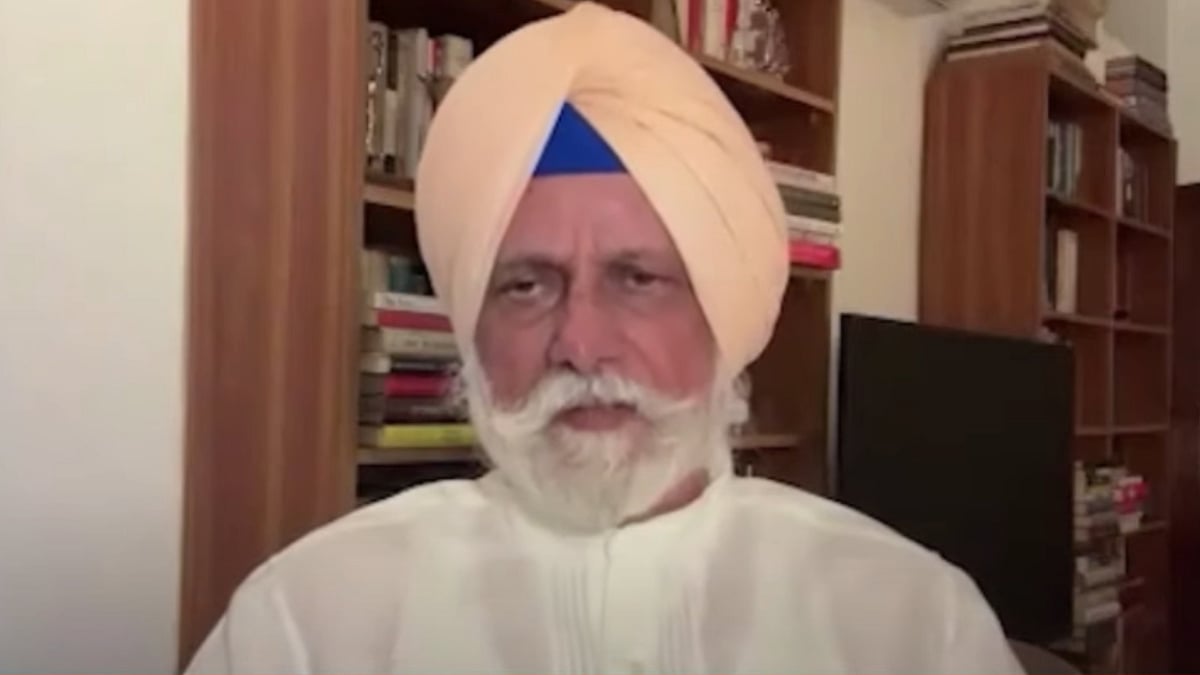Former Indian envoy K.C. Singh speaks on India’s diplomatic strategy amid rising regional tensions | File Photo
As India navigates rising tensions with Pakistan and an evolving global order, the government is reportedly preparing diplomatic delegations to reach out to key international allies. But how effective can such outreach be in today’s fragmented world? Afrida Rahman Ali speaks to Ambassador K.C. Singh, former Indian envoy to the UAE and Iran, and one of India’s most experienced voices in strategic affairs.
AFRIDA RAHMAN ALI: India is reportedly sending out diplomatic delegations to rally global support on the issue of cross-border terror. Do you see this as an imperative at this point?
K.C. SINGH: That depends entirely on where these delegations are going. There’s ambiguity right now. In earlier times — under both UPA and NDA — such efforts were well planned. But today, there’s confusion. Trump’s statements have added to it. Remember, in 2019, he claimed Modi asked him to mediate on Kashmir. Two weeks later, Article 370 was abrogated. Whether or not there was a tacit understanding with Pakistan at that point is unclear, but it’s created a perception problem now.
AFRIDA: Do you think Trump’s recent remarks about mediating a ceasefire are damaging?
SINGH: It’s embarrassing, yes. Especially since India has always said Kashmir is a bilateral issue. But Delhi seems reluctant to counter him directly — perhaps because of the ongoing trade negotiations. Trump is using trade as leverage. However, the danger is that staying silent could backfire, both politically and diplomatically.
AFRIDA: You mentioned Turkey, Azerbaijan, and China. How do you assess India’s current relations with these nations?
SINGH: Turkey and Azerbaijan have clearly sided with Pakistan. We’ve already started acting against Turkey — the ground-handling company, for instance. China’s role is less overt, but we know their weapons are in Pakistan’s hands. There’s also likely intelligence and satellite coordination. So yes, it’s not just Pakistan anymore — it’s a China-backed Pakistan.
AFRIDA: In that case, is India fighting a multi-headed challenge?
SINGH: Precisely. Pakistan may be economically weak, but the army is not. And China will ensure Pakistan doesn’t collapse. The idea that Pakistan has faded from the scene — which some in India assumed post-Article 370 — is a mistake. They’re back in the international narrative, and they’re getting moral parity again.
AFRIDA: The government seems to be engaging the Taliban too. Is that a viable strategy?
SINGH: That’s scraping the bottom of the barrel. The Taliban has its own agenda. Yes, they have issues with Pakistan now, but that could change any day. They are not reliable allies.
AFRIDA: Kapil Sibal has endorsed such diplomatic outreach, drawing parallels to efforts by PM Manmohan Singh. Who should India be approaching today?
SINGH: If it’s about terrorism, then the UN Security Council members are the key — minus China, which won’t cooperate. The FATF also matters. But remember, India already has missions in all these places. What more can these delegations achieve? Earlier such missions were meaningful when the world was undecided on India-Pakistan matters. Today, everyone is distracted — by Gaza, Ukraine, Taiwan.
AFRIDA: Defence Minister Rajnath Singh has raised concerns about Pakistan’s nukes. Can that line of argument gain traction?
SINGH: Realistically, no. The IAEA is already stretched with Iran. And China will block any such move on Pakistan. Raising the issue is good for domestic optics, but the world won’t act on it.
AFRIDA: DGMO has presented proof of Chinese missiles shot down by Indian defences. Is it time to openly acknowledge we’re dealing with a China-Pak axis?
SINGH: We’ve always known that. Seventy-one percent of Pakistan’s arms are from China now. With the US stepping back post-Afghanistan, the Chinese role has become more dominant and visible. It’s no longer a proxy dynamic — it’s a partnership.
AFRIDA: Does this mean the Modi doctrine of no talks without end to terror has run its course?
SINGH: Possibly. We may need to recalibrate. Talks can still happen — but on our terms. Not necessarily on Kashmir, but maybe on water, on terror. Indus Waters Treaty could be relooked at. If they want water, we want them to stop terrorism. That can be a new diplomatic currency.
AFRIDA: Final thoughts?
SINGH: India needs to avoid looking desperate. Strategic clarity is needed. Not just outreach for optics. Delegations must be targeted, and the narrative coherent. Otherwise, we risk losing the initiative again.
